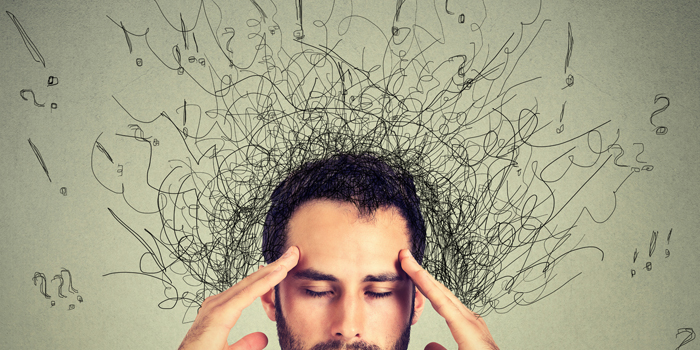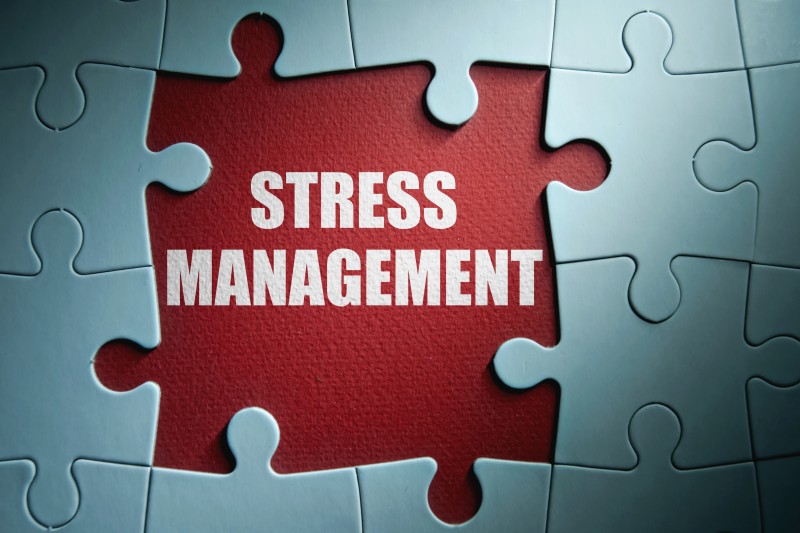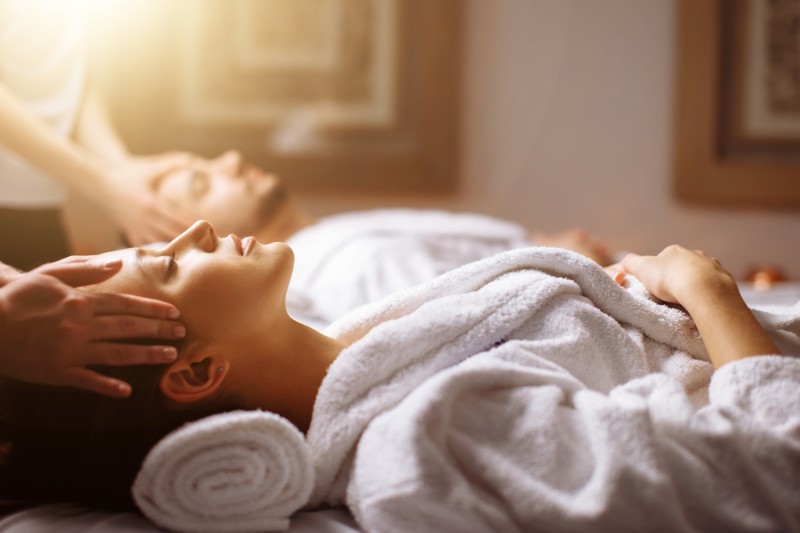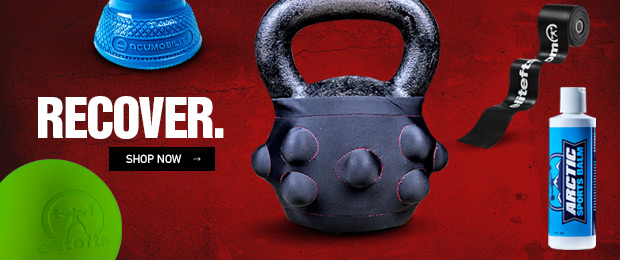
Every aspect of recovery seems enormous and overwhelming at first. There is just so much to do! Well, that is true. When you see it clearly, you find that the weight room stuff is quick and easy compared to the real work of growth and recovery. You only have one thing to do in the weight room… lift heavy things! Easy!
But outside the training hall, there are countless things to attend to that seem to just lead to more things! No wonder many people just don't bother. They train hard then let nature do the rest. That works for a minute, but only at the lower levels of strength. As you climb higher and higher, you have to consider the recovery program just as much (more, really) as the workout program.
RELATED: 9 Ways to Upgrade Your Sleep Hygiene Tonight
If you leave things to chance, you will get chance results. If you demand continuous progress to the highest levels, then you must do the requisite work as it relates to recovery. This pillar of recovery is a doozy. How do you balance and deal with all of the stresses in your life? Not just the stress of training and competition — all of the stress. It is a big topic, and it has many good solutions. The more of this puzzle you get figured out, the better your chances for victory.
I am not going to make the case for stress reduction. I will assume that we are in agreement that the stress from hard physical training is difficult enough to recover from and that additional stresses in life only make the job harder. We will accept the premise that if we can lower our total stress loads, we can recover faster and more fully. I will assume you are with me on this. If this is not crystal clear to you, you are probably not at the higher end of strength acquisition. The closer you are to fulfilling your potential, the more this will make sense to you. If it doesn’t, please keep reading. One day it will.

pixelbliss © 123rf.com
Let's make sure we understand stress a tiny bit. I've written before about the difference between good stress and bad stress. The former is known as eustress and the latter as distress. The main difference is in our interpretation of the outcome of the stress in our lives. If it is a happy or positive outcome, then it is called eustress, but if it is a negative outcome, we term it distress.
But to our bodies (psyche and spirit, too), they are equivalent. The body sees them as the same amount of happening, or the same amount of stress. If you get a promotion or lose your job, the body reacts the same. It has to deal with the energy and change to the system. One is good and one is bad for your life, in theory, but the relative change in the status quo is equal. They just move in opposite directions. The total stress amounts to the total change in the norm. Get married or have a divorce. Stress. Buy a house, sell a house. Same. It matters not how we interpret things, at least not to the body.
There is an argument to be made that bad things can have greater mental effects than good ones. That can be debated, but for our discussion about recovery, I merely wanted to bring up the point that some stress goes unnoticed by us because it is deemed good. We recognize the bad stuff as stressing. But we often overlook the stress that accompanies good events. I only point this out to make you aware of the hidden stresses that can build up and get no attention. Be careful not to discount their effect on your recovery.
Whether it is good or bad stress, how can we deal with it so it does not outstrip our ability to recover?
The good news is that there are plenty of techniques to explore. In the end, anything that helps you is your friend. Some ideas that I will throw at you may sound ineffectual or even silly, but you shouldn't toss them out until you’ve tried them! Henry Ford took all his potential executive hires to lunch. If they salted their food before they tasted it, they were not hired. He did not want people working for him making decisions before they had all the facts. If you try it and it doesn’t work, toss it. But to toss it before you know… well then, you get what you get.
What we are looking for are ways to lower the total stress of life, not just training stress. There is only so much stress one can endure without compromising performance. If we can find ways to diffuse stress from life, we can use the saved energy to combat the stress of hard physical training and the stress of competition... in theory. This is not a hard science.
Maybe the way to go about it is to increase our resistance to stress and let the shit fly. Building more tolerance would mean we get the same overall effect possibly. But that seems much, much harder than lowering and dismissing the stress as it comes. Or better still, to learn to avoid it before it happens to us! This is unavoidable in training but possible in the totality of life events.

pixelbliss © 123rf.com
If the theory of lowering your stress level sounds reasonable to you as it pertains to improving recovery and performance, even without scientific proof, then it might be worth pursuing. The science is lacking because it is unethical to purposely put undue stress on people and give them different methods to cope (one group must get zero coping methods as controls) to compare them against each other. But when groups of people have a common stress (like combat or the death of a loved one), we do get an idea of things that help them. It's not dead-on science, but we have some very good tools. These things can be as simple as petting your dog (or in my case, cat). Let’s start there, in fact.
There are plenty of studies that show a reduction in heart rate and blood pressure when people pet their animals. They are calmed by the act. This happens automatically. If you chose to ritualize it and expressly try to let it calm you down, then I would expect the effect to be even greater. I know this because I own cats. They are my little Zen teachers. They are still, quiet, calm, and focused (not to mention warm, soft, and super cuddly). They don't move or stir. They lay completely heavy and relaxed. They don't have a tense muscle in their bodies. And they purr. They know how to just be. I can put one in my lap and feel myself begin to unwind. Yes, this is partly a self-fulfilling prophecy because that is my exact intention, but that does not in any way diminish the effect! I calm down every time.
Is it all in my mind and happens only because I expect it to? Who cares? I have found a tool that never lets me down. If it is the cat, some magic, or just my own desire manifested by a psychosomatic process, the end product is the same. I relax quite a lot.
Truth be told, that if I “knew then what I know now” about this, I would have made more traveling competitions doing all I could to bring along a cat with me. Sitting quietly with my cats de-stresses me. Maybe it will help you. Any pet could work as long as it does not excite you instead. Cats are just naturals.
Another idea for consideration is a walk. This has many benefits in health and can be a time of introspection and deep thinking. Or it can be an escape from thinking! The beauty of nature and mankind’s connection to it may come flooding back to you. Who knows, you might even see an animal or two. I call that trail magic. A bunny or squirrel can make your day. And if you catch a deer or something more exciting, it is like a little prize.
The walk is healthy and can be done alone or with a companion or a house pet. Just don't drag along anyone or anything that could add stress! If you are in a spat with your significant other, they should be left at home that day! If your dog isn’t the model of behavior on a leash, walk him separately.
This is neither a walk to “get a walk in” like a fitness walk nor a walk to check off a box on recovery techniques. It is just a walk to relax, a slow, calm, non-goal-oriented behavior. You don't drive to the park, get out of the car, and dash around the trail as fast as you can so you get back to the car and drive off. No! You take a walk and enjoy it; otherwise, it becomes another stressor.
You look at things, hear the birds, smell the trees and flowers, etc. You stroll. It’s not exercise, and there are no points for getting it done sooner. This has been a staple of great men and women for literally centuries. The list is legion. If it's good enough for them, it's good enough for us.

brillianteagle © 123rf.com
Take a hot bath. Soak and relax. Again, we are after the psychological effects, but there are therapeutic benefits as well. You can look them up. But everybody knows that it just plain feels good! Music helps. Candles, salts, or soft lighting can be useful.
Aromas are popular and can link the experience with memory in powerful ways. The more olfactory stimulation, the more likely that a memory will be induced. If the memory is one of being calm and relaxed, then just smelling the same smell can trigger a physical soothing response. Again, this technique is well-established and has been around for a long time.
But ask yourself, when was the last time that you got into a tub without setting a time limit to get out? Or even when you even got in a tub at all? We rush around and getting clean is a habit of convenience. I'm not talking here about hygiene. You don't even have to use soap for a soak. It's not about that. It's about unplugging from the world of stress for a while and letting the world get along without you. Do you think you can do that? You should try it. Rest assured, the world will be just fine without you for a while.
Meditation is very good. Again, it is about getting unplugged and having no agenda. There is nothing to do. So you do nothing. You sit and you breathe. You try not to even think. Just be. You don't DO...you just BE. What does that mean? To just be? Well, you can explore that by meditating. Maybe it’s like sleep for your stress.
You just don't worry about the whole business for a spell. All of the business. Just sit. Just breathe. Just have a break from it all. There are lots of good methods. Pick any one and try it for a week. If you expect something you've missed the point. Just let go and sit and breathe. Don't want anything. Don’t do anything. Let things happen (or don’t let things happen) to you. It's not for everyone. But it just may be for you. You might be surprised. I was.
Massages can relax the body and the mind. It's a double whammy. It can be expensive, though. The eastern bloc countries had very elaborate massage schedules for their athletes. It was programmed right into the training, as were ice baths and even weirder stuff, like beatings with birch branches to improve circulation.
But if you choose massages, make a clear distinction. The massage I’m talking about is therapeutic; therefore, it must not hurt! I can't overstate that enough. If it hurts, you have just introduced another stress and also something that needs to be recovered from! Ay Chihuahua!
There is an idiotic trend in sports massage and deep tissue bullshit that goes along the lines of “if it hurts, it’s helping.” That is so stupid. I’m not going to spend another sentence on it. I'm advocating for relaxing, relieving, rejuvenating massages. You should feel great, not sore the next day; what a waste of money that was! Pay me, and I'll beat you with a ball bat if you're that misguided.
A good therapist will ask repeatedly if the pressure is too much. You should be honest and tell them to back off if you are bracing or tensing during the session. If you don’t, you won’t get the results you are looking for. No prizes for being a tough guy. No pain, no gain... NO WAY!
Watching TV? Please don't fall for this one. Do not, I repeat, do not watch television and believe that you are relaxing or unwinding. You certainly are not. The studies agree on this. TV stresses you out and stimulates you. It’s meant to. It's interesting on purpose. It's exciting on purpose.

Альберт Шакиров © 123rf.com
I've heard all the explanations about how people say that the science does not apply to them. They are absolutely adamant that they do relax when they watch TV. They can't speak for others, but they must be different. They know it works for them.
If you are in this category of people who believe that science must yield to their own fantasies about the world, I would ask you to make sure by stopping the TV for a month. See if, in fact, you are just like the rest of us and become less stressed by watching less TV or you are indeed an island unto yourself and TV has a paradoxical effect on you and you alone to the end that you are calmed by it. Who knows? You just might be the first person to actually be soothed by the boob tube. I won't hold my breath.
The relief that you may be mistaking for relaxation in good measure might be the permission you give yourself from thinking while you watch. This is not true rest for your mind though. You are simply handing over the reins to corporations and letting them do your thinking for a few hours. Your brain is stimulated, but not in the direction of your choosing. It is tuned to the direction of the programmers. This is a false sense of relaxation. It is not sleep; it is not meditation. It is a state of surrender to the mass media. You are not doing the job of thinking to be sure, but you are far from relaxed.
This has implications that sweep wide of this discussion. But suffice it to say that I could not be more against it. I will admonish you to turn off the tube for reasons of recovery and rejuvenation, but I could hand you a dozen other good reasons to do the same for the sake of your sanity, autonomy, and mental health. Pick up a book and turn off the TV. I turned mine off for good in 1999 and have not missed it one iota.
Reading can be stimulating or relaxing. Just as can music. It depends on the material. Playing a musical instrument can be as well. The list goes on. Arts and crafts or any modest hobby activity can be rewarding and calming is worth looking at. Talk to a beekeeper. They speak about their hobby with passion and almost reverence. It makes me want to try it.
The point seems to be that if you can find something that you can get high levels of enjoyment from with relatively small inputs of energy, you are probably on the right track. The enjoyment has something to do with the therapeutic value. If you dig it and it transports you away from the grind, it seems to have a positive effect and fits the bill. Look closely at how much you enjoy the activity.
I've never believed anyone who can convince me that they really, truly, enjoy watching TV, but people do seem to actually enjoy going out on the water in a boat. Or fishing. Or camping. Or... you get the picture. I believe them. The joy is the medicine. The calm is the medicine. The quiet is the medicine. The activity is just the container it comes in.
Heavy training has a price. It can be full of joy. But it is in no way soothing or calming. Finding a balancing activity to enjoy in an oppositional way makes sense. More exciting (however enjoyable) things just add positive stress. What we need to find is something that can be enjoyable in a sedative way. It is a perfect example of the Eastern idea of Yin and Yang. Opposites.
Restorative techniques range from the most physical to the predominantly mental and even spiritual. Prayer is supremely calming and restorative for some. Nature walks for others. Stretching and ice massage for still others.

sean824 © 123rf.com
But in the end, a combination of strategies can be of great benefit to you. Whether they are psychosomatic responses or absolute physical reactions matters not. It is moot. If you can find a way to trigger relaxation and recovery by any means, nobody can steal that away from you. I don't put much credence in crystal healing, but if you can trigger your mind to release the right chemistry with rocks, my hat is off to you. The placebo and nocebo effects are real things, and they count! The crystals might not cause the same reaction in my head, but I might wish they did, and I had that go-to psychosomatic trigger!
I'm suggesting that you look actively at stress management from an art perspective as much as a science perspective. Feel your way to it. Look into massages, meditation, stretching, and hot and cold therapies. But don't stop there. Look at more esoteric methods that others have put forth. Try sitting down with a cup of tea. Any activity you can use to blow off steam and unwind and decompress is a win, no matter how odd it may seem to others.
The list is long and the limit is in your ability to make it work. Your personality has a great deal to do with it, I think. We are really prone to overemphasizing the go-getter in us in the gym. But can you turn it off at home? Here is a good place to make some progress in your overall training.
The higher the level of performance, the more important it becomes to attend to this. In theory, if you are at your absolute max in a lift, you will marshal all of your strength. If you have a maximum weight on the bar, you will only be successful if 100 percent of what you have to offer can be realized. 99.8 percent will result in a very close miss, but a miss just the same. Here is the crux of the biscuit: Where did the 0.2 percent go? Why wasn't it there for you? If you'd had it, you would have made the lift.
Now, you are left to wonder what you did wrong and how to make sure it does not repeat. Maybe you didn't get a good night's rest. That's a common one, isn't it? Could it be that if you had just slept better the previous night you may have been victorious? What about the last month of nights? Who knows? But when you come oh-so-close to success and fall only a fraction of a pound shy, these things become very important to you. You cannot just keep telling yourself that you have to try harder.
At some point in a career, you realize that you are at full go, and there is no more trying. Then you think about training. Then technique. But at some point, you think about recovery. Stress management comes into the picture. It is a part of the picture. Maybe if you could decrease the effect that stress has on you, you can find the 0.2 percent that is missing. I don't know. But I do know that I did not want to leave it to chance. I did everything I could to reduce and cope with stress.
No one thing is the secret to anyone's success but rather the whole picture. I became certain that I could improve my chances of making maximal lifts if I were fresher and less stressed all through the training cycle and year. I tried lots of methods. I found favorites. I've mentioned my Q.C.T. (Quality Cat Time) protocol. Just sit and pet your cat. Good medicine! But the world is full of opportunities to get rid of stress. It is up to you to find yours. The process is fun, though. In the end, if it calms you and it gives some enjoyment, I think you've got a tiger by the tail. Happy hunting!
Header image credit: pixelbliss © 123rf.com











One thing that I enjoy is going to the float center. They have several isolation tanks with water at 94 deg and with enough mag sulfate dissolved so that you float... sort of like going to the Great Salt Lake. Nest and enjoyable experience.